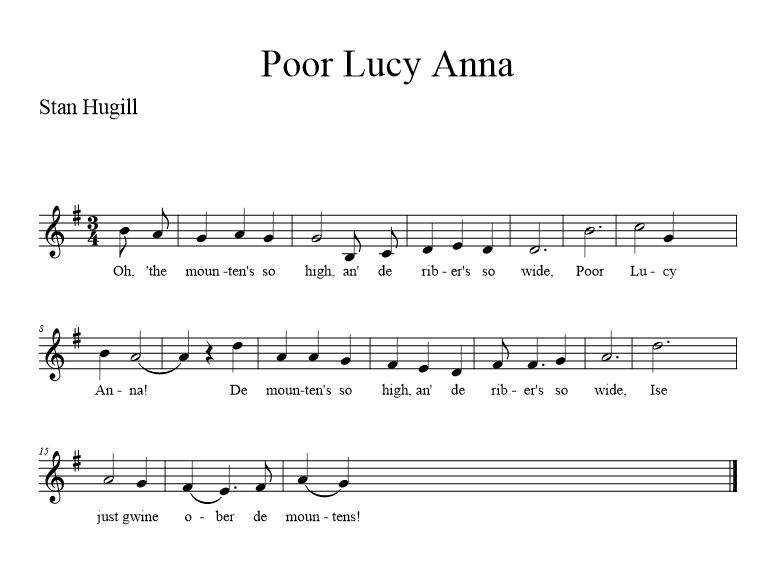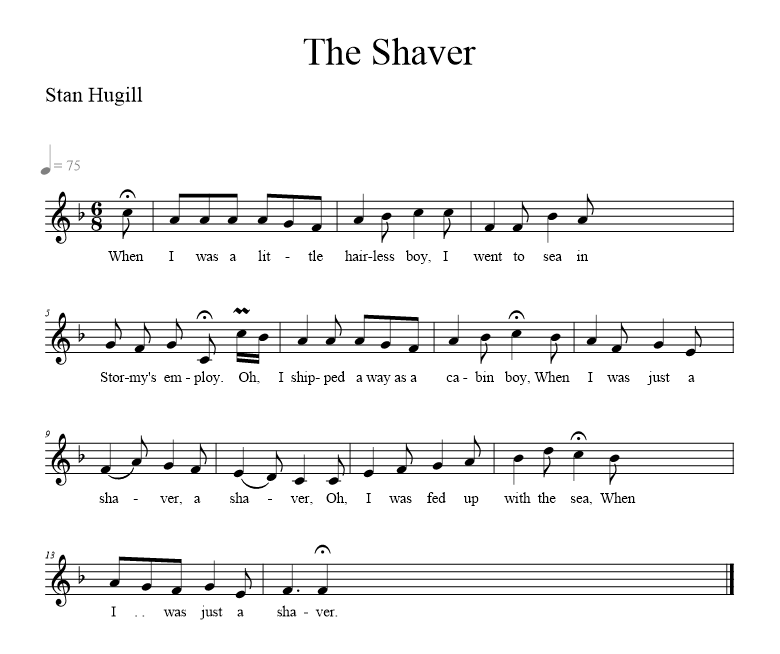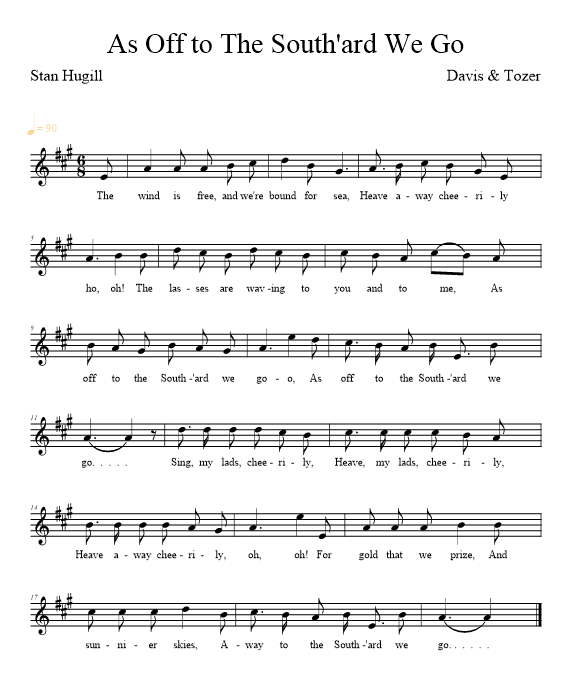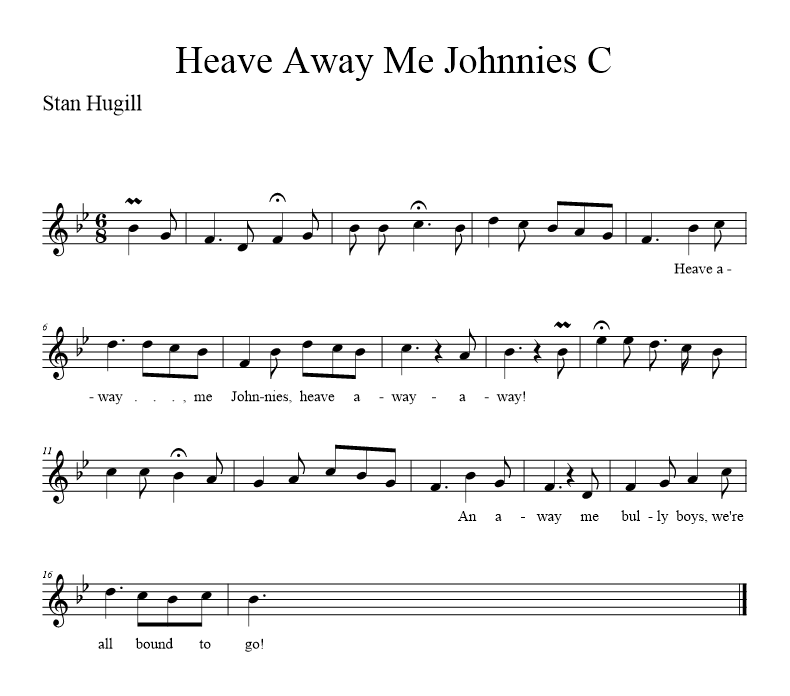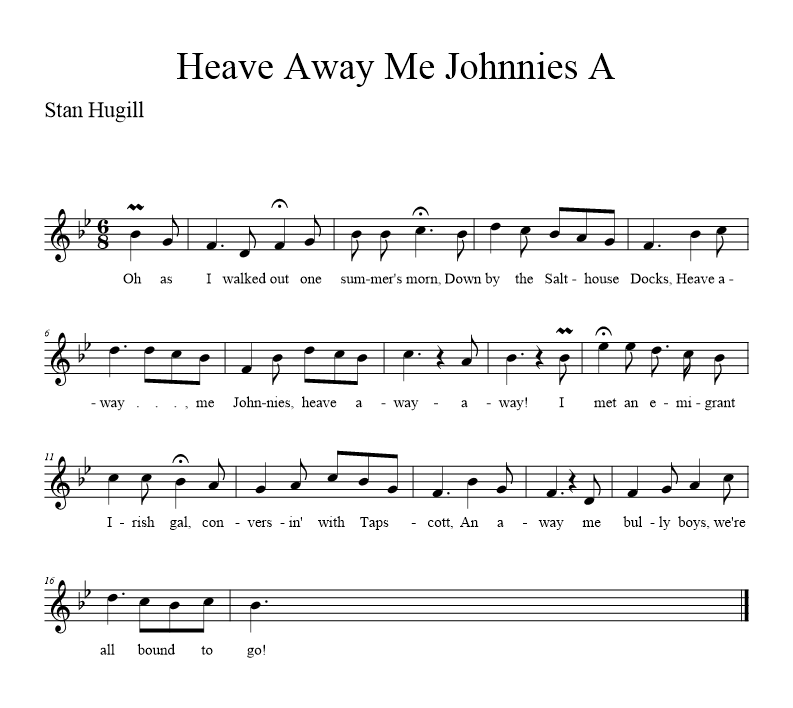Interesting Facts about the Jinny
“Jinny” is the capstan shanty and homeward-bound. A much more popular title of this song is “Jamboree”. In the time when Stan Hugill wrote his book, swear words or “bawdy words” was not acceptable for print, so in any case “words” has to be camouflaged. As we know from his book, this song was very difficult to camouflage. According to the “last leaving shantymen” this song also breaks another theory that shanties contain unprintable words only in solos, here the final and noisiest line of the chorus is unprintable! This version of Hugill was obtained partially from Mr. Jones, a Welsh mate who had served in many sailing ships, rest of the words of this song come from Stan Hugill himself.
The song will be reconstructed by myself as the windlass shanty.
The source of this sea shanty
The music: “Shanties from the Seven Seas” by Stan Hugill (1st ed: p 382).
The lyrics: “Shanties from the Seven Seas” by Stan Hugill (1st ed: p 382, 383).
The Record of the Jinny
You also can find this record on my YouTube channel here or directly listen below. Additionally, if you want to share your opinion about the record or share your opinion you can do it in my Facebook forum here, or leave a comment at the bottom of this blog article.
The musical notation
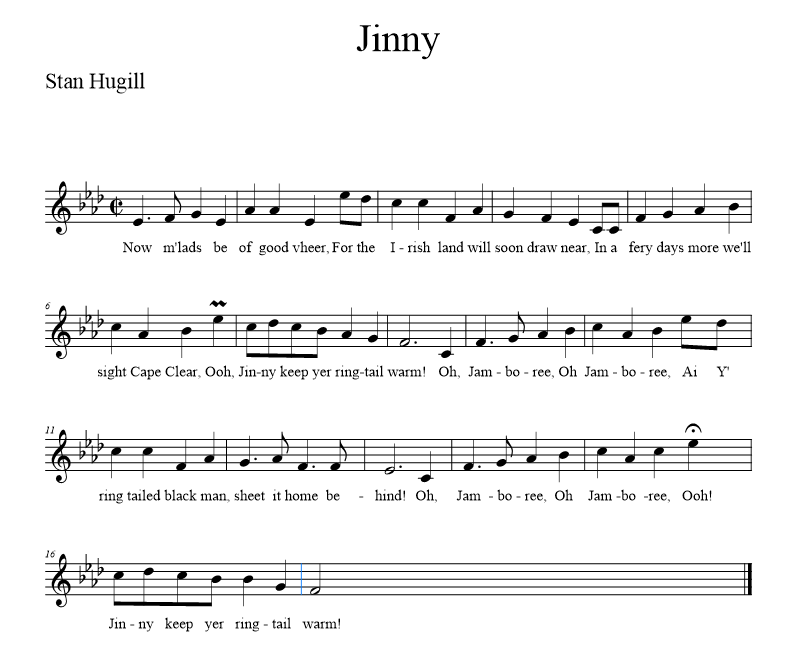
And the full lyrics
Jinny
Now m’lads be of good vheer,
For the Irish land will soon draw near,
In a fery days more we’ll sight Cape Clear,
Ooooh, Jinny keep yer ringtail warm!
– Oh, Jamboree, Oh Jamboree,
– Ai-i-i! Y’ring tailed black man, sheet it home behind!
– Oh, Jamboree, Oh Jamboree,
– Ooooh, Jinny keep yer ringtail warm!
* 2 *
Now, me boys, we’re off Holyhead
An’ there’s no more casts of the dipsy lead,
‘N’ soon we’ll be in a lovely fevver bed,
Ooooh, Jinny keep yer ringtail warm!
* 3 *
Now the Barship is in sight,
An’ soon we’ll be off the pl’ Rock Light,
An’ I will clean the flue ternight.
Ooooh, Jinnie keep yer ringtail warm!
* 4 *
Now we’re through the dock,
All the pretty young gals on the pierhead do flock,
An’ there’s my Jinnie in a new pink frock,
Ooooh, Jinny keep yer ringtail warm!
* 5 *
Now we’re tied up to the pier,
Oh, it’s ‘way down below, an’ pack yer musty gear,
An’ I’ll soon be a-kissin’ o’ you, me dear,
Ooooh, Jinnie keep yer ringtail warm!
* 6 *
Now I’m safe upon the shore,
An’ I don’t give a damn how the winds do roar,
For I’ll drop me anchor an’ I’ll to sea no more,
Ooooh, Jinnie keep yer ringtail warm!
* 7 *
But now I’ve had two weeks ashore,
I’ll pack me bags an’ I’ll go to sea once more,
An’ I’ll bid goodbye to me Liverpool whore,
Ooooh, Jinnie keep yer ringtail warm!



